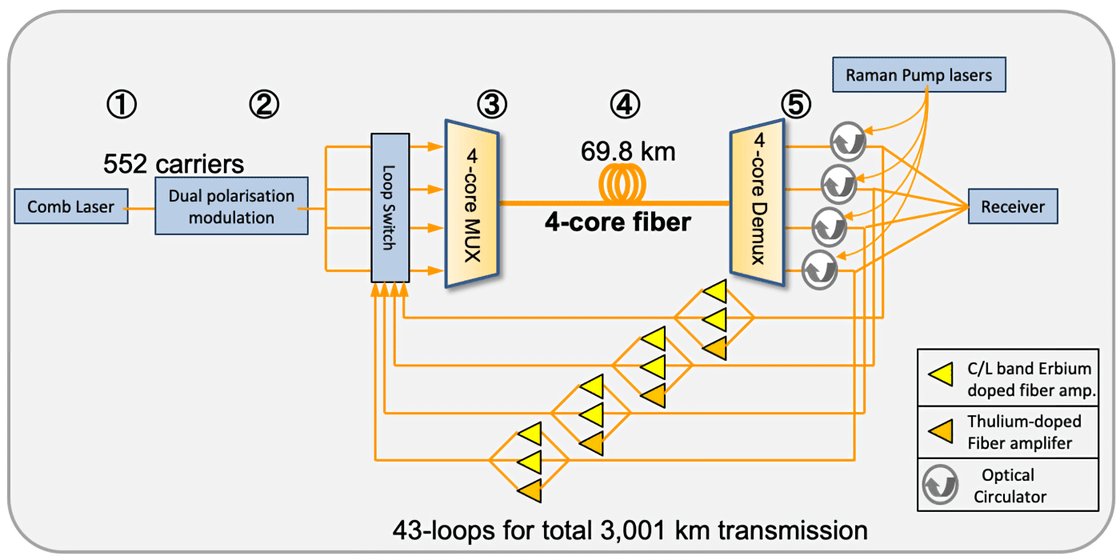Editor's take: A team of researchers from the National Institute of Information and Communication Technology (NICT) in Japan have blown the old Internet speed record of 178 terabits a second out of the water. The new record? An eye-watering 319 terabits per second. It took some ingenuity and tweaking to get it working, but the good news is that the new fiber optics are compatible with existing equipment, meaning it might not be too difficult to retrofit existing lines.

To achieve this feat, the researchers (led by led by Benjamin J. Puttnam) built a transmission system that fully utilizes wavelength division multiplexing technology by combining different amplifier tech.

Their four-core optical fiber (with a standard outer diameter of 0.125 mm) stretched 69.8 km and was looped 43 times for a final transmission distance of 3,001 km, or roughly 1,865 miles.
The research paper on the matter goes into much greater detail if you’re into that sort of thing, and involves the use of rare earth ions and lasers. It sounds equal parts complicated and awesome, assuming of course that you can make sense of it all.
The combined >120nm transmission bandwidth allowed 552 wavelength-division multiplexed channels by adopting 2 kinds of doped-fiber amplifier together with distributed Raman amplification, to enable recirculating transmission of the wideband signal.
The team said the optical fiber they used can be cabled with existing equipment. The hope, they added, is that the breakthrough can enable practical, high data-rate transmission in the near future, perhaps as a next step beyond 5G.
https://www.techspot.com/news/90452-japan-sets-new-world-record-internet-speed-319.html